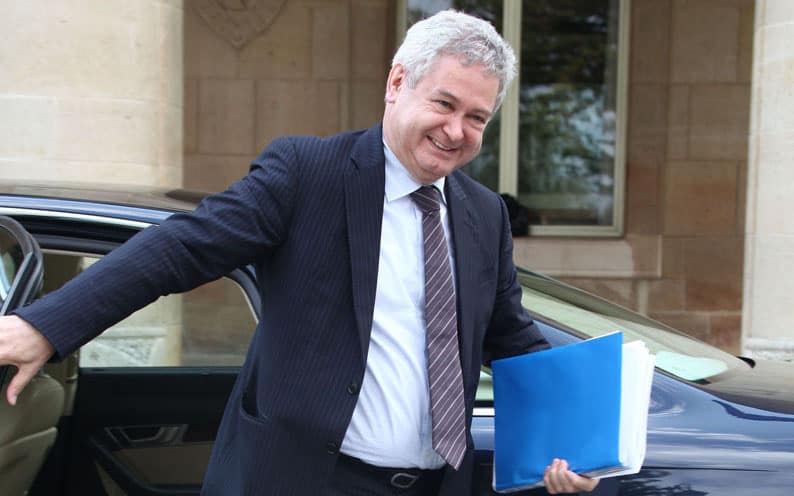Main opposition Akel-backed independent candidate Andreas Mavroyiannis has published the financing he received from the party for his campaign on Thursday as a debate brewed about special allowances given for elections.
In a statement from his campaign, Mavroyiannis called on his fellow candidates to do the same.
According to what was published, Akel contributed €510,000 to the candidate’s campaign.
Meanwhile, at a debate on Wednesday night, independent candidate Yiorgos Colocassides said that he had not received any financial backing for his candidacy, unlike his competition backed by major parties, which he claimed received special funding.
Colocassides has said that he filed a case with the supreme court.
Quick to rebutt, junior opposition Diko, Edek, and Depa-backed independent Nikos Christodoulides said that he had not received “even one cent” from the parties backing him.
Also during the debate, Auditor-general Odysseas Michaelides made it clear in his statement on Twitter that sponsorship to the parties is given uniformly.
“For the information of the citizens following the debate: With the amendment of the law at the end of 2021, state funding to parties is one and indivisible whereas before it had two strands (regular funding plus sponsorship to cover election expenses when there were elections),” he said.
In another development, all the parties supporting Christodoulides on Thursday issued statements saying that they did not receive any further financing for the campaign, and that they had only received the financing they get every year as a registered political party in parliament.
Diko said that the statements made about party funding were “inaccurate and wrong”.
They added that they receive one tranche of funding as all the parties.
Depa, which also supports Christodoulides, and the Green party, which supports none of the candidates, also echoed Diko’s statement.
In 2021, the legislative proposal – sponsored by Disy, Akel, Diko and the Greens – amended the Political Parties Law.
Under the system, it was decided that state aid would be disbursed to parties already in the House in January of each year, in five equal instalments – reflecting the five year-period between legislative elections.
The share of the grant for which each party is eligible depends on the percentage of the popular vote they garnered in the latest parliamentary elections.
For parties not already in parliament, but who gain a seat in the parliamentary elections, they may apply for their share of state assistance in the month following the elections. The amount disbursed in these cases will correspond to the time period from the month following the elections until the end of the year in question.
The issue surfaced after the May 2021 parliamentary elections, with political parties squabbling over how state aid should be redistributed to reflect the results of that ballot.







Click here to change your cookie preferences